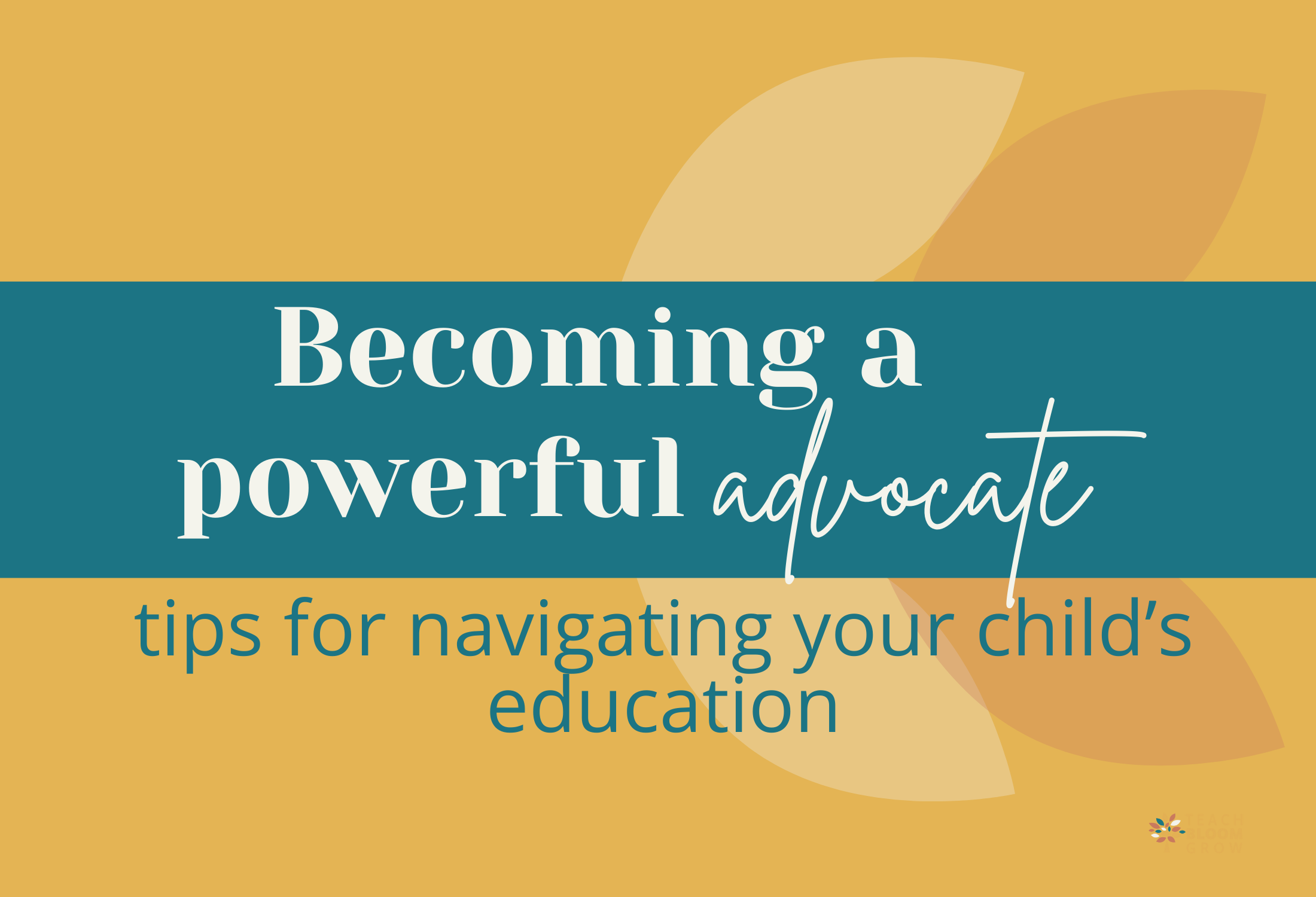Become a Powerful Advocate: Tips for Navigating Your Child's Education
In education, understanding your child’s rights is critical for effective advocacy. This includes being familiar with the parts of an IEP, understanding what a free and appropriate public education means, and knowing what documents and data to request. Honestly, there is a lot to remember when learning to be an advocate for a child’s education. However, learning the ins and outs is essential to ensuring your child receives the right support. So, let’s look at how to become a powerful advocate: tips for navigating your child’s education!
Understanding Your Child's Rights
There are a lot of acronyms to learn when being an advocate for a child’s education! While it will take some time and research, knowing the different programs, laws, and requirements will help you advocate effectively.
When diving into individual rights, you will want to learn about the Individuals with Disabilities Education Act (IDEA), Individualized Education Plan (IEP) sections, and 504 Rights. Additionally, it will be essential to explore modifications versus accommodations. Ultimately, being well-versed in your child’s rights enhances your ability to advocate for your child’s educational needs.
Building Strong Relationships with School Staff
When learning to become a powerful advocate: tips for navigating your child’s education, relationships are key! While knowing different legal terms and programs is helpful, nothing can replace positive relationships with school staff. Start by introducing yourself to teachers, administrators, and support staff. After having a positive first meeting, everyone is more likely to communicate with each other. Essentially, building trust can lead to more productive conversations and collaborative problem-solving.
It will also be helpful to have regular communication. Do not just wait until your yearly ETR or IEP meeting. Reach out whenever there are concerns, praises, or questions. Be sure to have an open mind, listen to the different perspectives, and express what you would and would not like to see happen.
Effective Communication Strategies
Effective communication needs to be clear, respectful, open, and honest. Relevant and specific information is essential when advocating for a child’s education. This will help you articulate your concerns appropriately, ask questions, and express gratitude. Also, be sure to focus on solutions rather than just problems when communicating. Communication will go much smoother when conversations stay positive and productive.
Check out the IEP Checklist for 6 tips on the best ways to prepare for your next IEP meeting!
Documenting Your Child's Progress
Documentation serves as a vital tool in advocacy. Detailed records of your child’s educational journey provide a factual basis for discussions with educators and administrators. Maintain a file that includes reports, IEPs, meeting notes, and any correspondence with the school.
Tracking your child's progress over time can help identify patterns, strengths, and areas needing improvement. Review assessments and feedback regularly to ensure teachers and staff can make necessary adjustments promptly. An organized approach to documentation not only supports your advocacy efforts but also reinforces your commitment to your child's educational success.
Seeking Additional Support
When navigating your child's education, it’s important to recognize when additional support might be necessary. This can include seeking guidance from special education advocates, educational consultants, or legal professionals specializing in education law.
For example, an IEP Coach is a knowledgeable mentor and partner who walks alongside you to navigate the IEP process. Be sure to check out this mentorship to help you become an equal and confident member of the IEP team.
Celebrating Successes
Honestly, celebrating success is essential when advocating for a child’s education! No matter how big or small the success is, any achievement deserves celebration. For example, a celebration may occur when a child finishes a challenging project, overcomes a personal struggle, improves grades, or strengthens comprehension. Since you know your child best, celebrate whenever there is an improvement!
When discovering how to become a powerful advocate: tips for navigating your child’s education are essential! Since you know your child best, never hesitate to use your voice to ensure your child receives the best education possible.
If you do not want to miss any of the upcoming lessons, join my email list to be notified of all the interactive lessons coming up! By joining the email list, you will receive freebies for blog exclusive subscribers!



